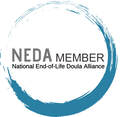|
Today's blog post addresses a pressing and serious issue – the alarming risk of suicide among caregivers. The role of an unpaid caretaker is akin to a double-edged sword, offering moments of brightness while also subjecting individuals to a potentially lonely and soul-crushing experience. This post aims to explore the emotional toll caregivers endure and provide comprehensive tips for suicide prevention, shedding light on a topic that is often overlooked. The Emotional Toll of Caregiving: Being an unpaid caregiver is a challenging journey marked by both uplifting moments and profound challenges. Witnessing a loved one's health deteriorate, coupled with the realization of one's limited ability to intervene, can be an emotionally overwhelming experience. The weight of these responsibilities is underscored by a survey conducted by the American Psychological Association, revealing that out of 5,470 Americans surveyed, a staggering 66% reported experiencing mental health effects due to their role as unpaid caregivers. Moreover, 32% admitted to dealing with mental health issues such as depression, anxiety, or substance abuse, while a concerning 30% acknowledged having seriously considered suicide. Understanding the Statistics: These statistics paint a stark picture of the emotional strain caregivers face daily. It is crucial to recognize that if you find yourself among these numbers, you are not alone. The isolation and despair you may be feeling are shared by many in similar caregiving roles. It's important to understand that there is help available, and reaching out is a courageous first step towards healing. Seeking Support: In times of emotional distress, seeking support is paramount. Various organizations specialize in providing assistance to individuals grappling with suicidal thoughts. If you or someone you know is facing the emotional strain of caregiving and contemplating suicide, consider reaching out to organizations such as the National Suicide Prevention Lifeline, Crisis Text Line, or local mental health support services. These organizations offer valuable resources, counseling services, and support networks to help caregivers navigate their challenging roles and mental health struggles. A list of resources is posted below. The Importance of Community: Building a sense of community among caregivers is essential. Connecting with others who share similar experiences can provide a lifeline of understanding and support. Online forums, local support groups, and community organizations dedicated to caregivers can offer a space for sharing stories, seeking advice, and fostering a sense of belonging. Establishing connections with fellow caregivers can help alleviate the isolation that often accompanies this role. While the journey of caregiving may be arduous, it's essential to prioritize mental well-being and seek help when needed. This post serves as a reminder that there is a community of support available, and no one should face the emotional toll of caregiving alone. Together, we can work towards creating a network that uplifts and empowers caregivers, ensuring they receive the assistance they need to navigate the complexities of their roles and maintain their mental health. If you or someone you know is struggling, reach out – help is available, and you are not alone. Resources988 Suicide & Crisis Lifeline: https://www.cdc.gov/suicide/index.html
988 Suicide & Crisis Lifeline Online Chat: https://988lifeline.org/chat/ The Trevor Project: https://www.thetrevorproject.org/get-help/
0 Comments
In the realm of End of Life and Hospice care, Barbara Karnes stands out as a true luminary. Widely recognized as one of the rockstars in this field, she has left an indelible mark with her seminal work, "Gone From My Sight," affectionately known as "the little blue book." For countless individuals, awareness of this poignant guide often dawns when a loved one enters hospice care. Remarkably, according to bkbooks.com, this influential book has reached a staggering 35 million copies sold since its inception in 1985.
Yet, Barbara Karnes is more than just the author of "Gone From My Sight." Her literary contributions extend to a diverse array of topics surrounding end-of-life experiences. Among her notable works are titles such as "The Eleventh Hour: A Caring Guideline for the Hours to Minutes Before Death," "You Need Care Too: Self Care for the Professional Caregiver," "A Time to Live: Living with A Life-Threatening Illness," and "Pain at End of Life: What You Need to Know About End of Life Comfort and Pain Management." What sets Barbara Karnes' body of work apart is not only its profound impact but also its accessibility. Her books, typically ranging from 15 to 22 pages, are concise yet comprehensive, making them easily digestible in just a half hour or less. The information is presented in an effortlessly readable format, transforming her publications into invaluable reference materials. They are portable companions, ready to be pulled out whenever needed, providing a wealth of insights at one's fingertips. In addition to the wealth of books available for purchase, Barbara Karnes's website also hosts an informative blog. This online resource serves as an extension of her commitment to disseminating knowledge, offering additional insights and perspectives on various end-of-life subjects. Whether through her compact yet impactful books or the insightful blog posts on her website, Barbara Karnes continues to be a beacon of guidance and support in navigating the complexities of hospice and end-of-life care. |
AuthorRobin Lehman Archives
April 2024
Categories |
 RSS Feed
RSS Feed


